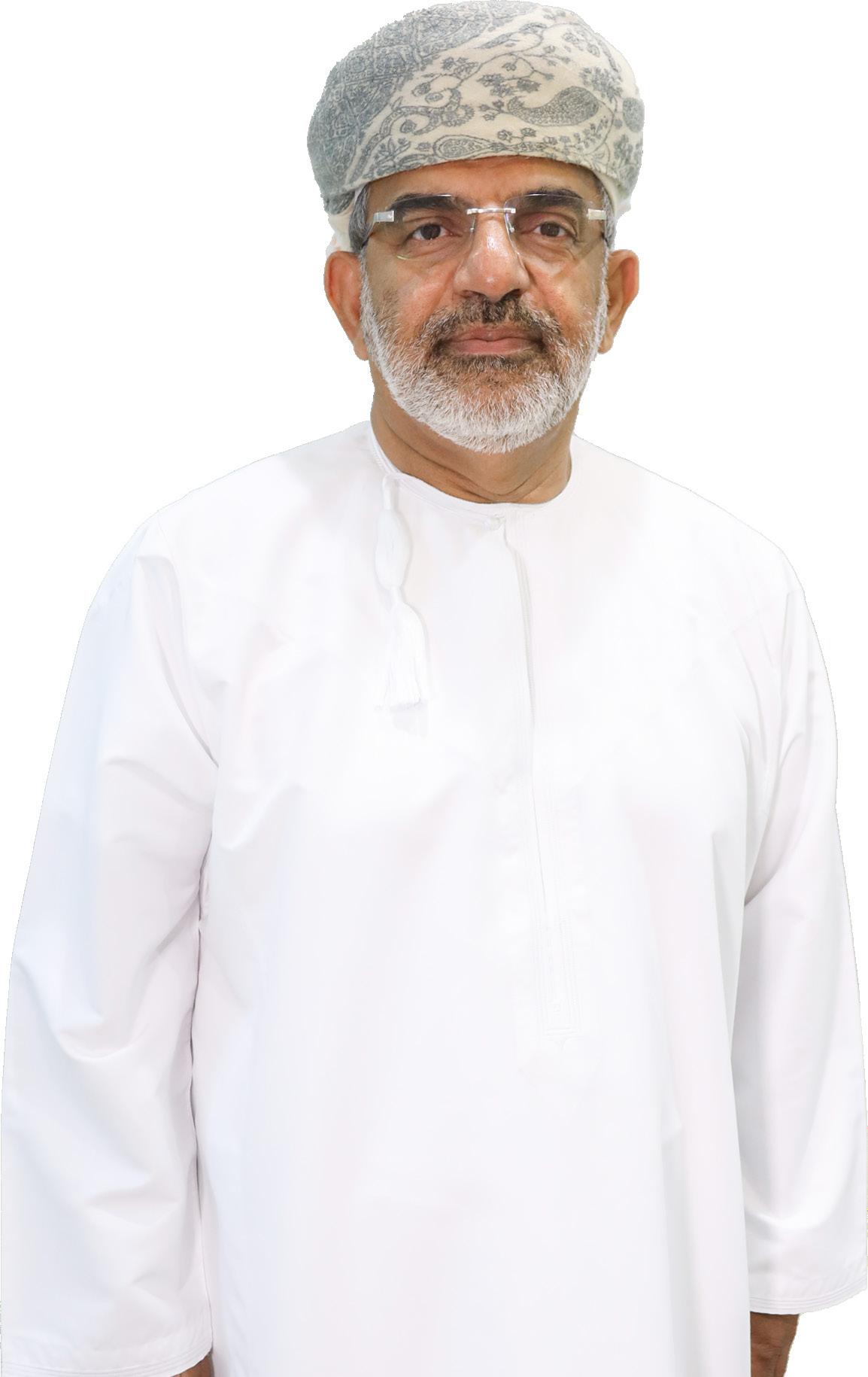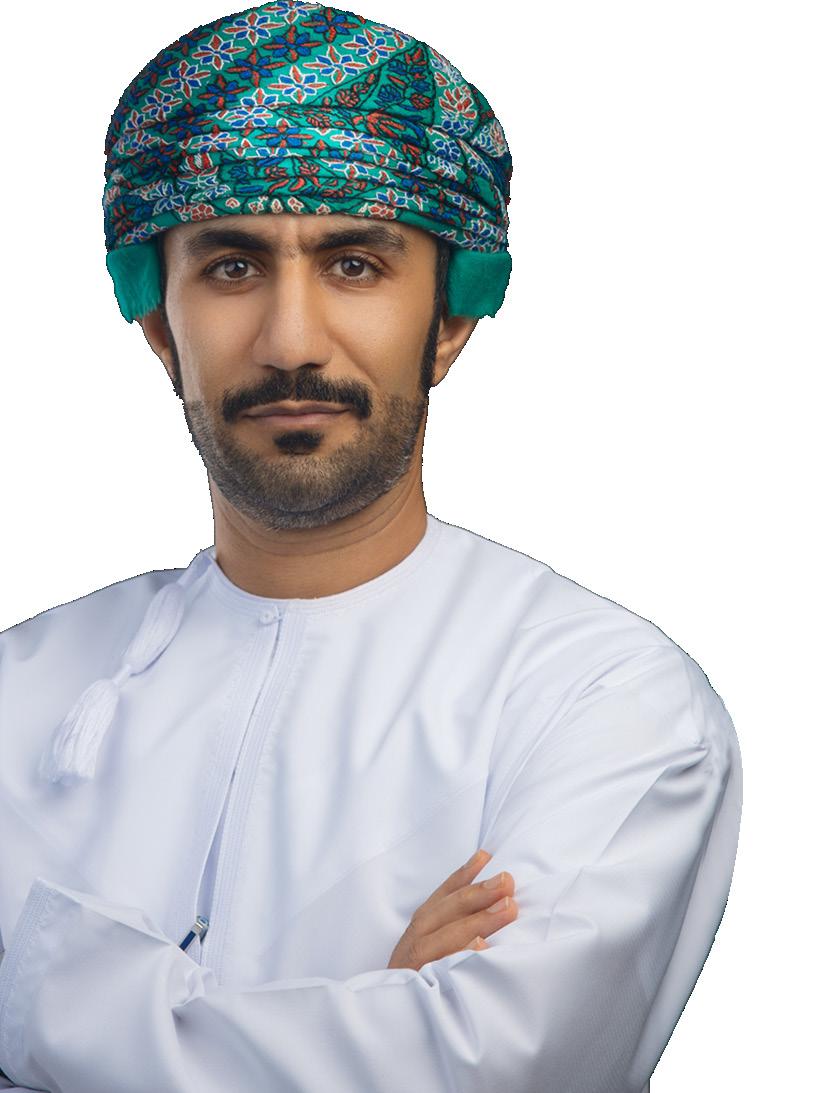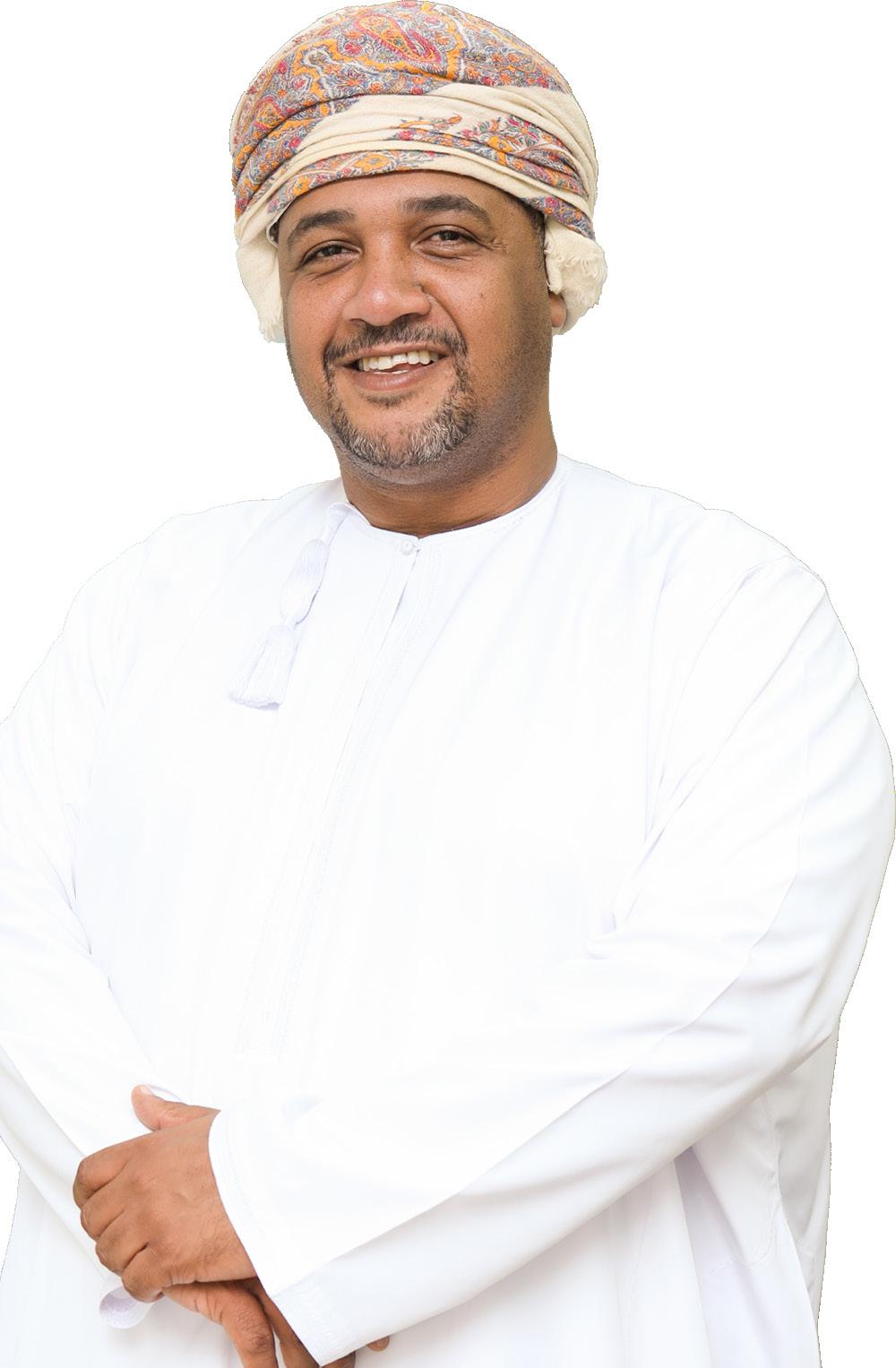
3 minute read
A Renewed Commitment
Eng. Omar Al-Wahaibi, Group Chief Executive Officer of Nama Group, highlights the organisation’s future plans
How
Advertisement
is Nama Group contributing to the development of renewable energy projects in Oman?
My expectation is that the number of plans and the speed of adopting renewables will accelerate in the years ahead. Green hydrogen is going to be a game changer for Oman. The biggest requirement for generating green hydrogen is renewables and the Sultanate of Oman has huge potential in this area. The demand for green resources will be much greater than what is required for electricity generation and Nama Group is working on it.
Nama Group has undertaken a restructuring programme in the distribution and supply sectors. In what ways will the new structure help the Group – and how will it benefit customers?
The Group embarked on a restructuring journey on the supply side of the electricity business. This has now progressed to a point that it is ready for implementation, pending some processes from banks.
For costumers the biggest benefit is that they will only be required to deal with one company for the billing and related processes, and another company for connection. Through this restructuring, we are also trying to make the interface much simpler so that our customers can have a smooth experience. As per the plan, you will have one interface in the North and another in the South of Oman. The restructuring programme will build a synergy between companies, and hopefully, there will be savings that will be reflected in the cost of the generation of electricity. Despite that, we have to be realistic and realise that this is not going to have a big impact on the cost of electricity.
Is Nama Group working on any significant projects in the renewable energy space?
Renewable energy is one of the key focus areas of Nama Group. We already completed the Ibri Solar Independent Power plant (IPP) as this 500MW facility is already operational. Meanwhile, we also have the Manah 1 and 2 solar projects, which are projects that will generate about 1,000MW. These projects will be kicked off for implementation now and will be followed by a series of projects in the wind and solar energy avenues.
Another big pillar for sustainability is Omanisation and developing national talent. What are the initiatives that Nama Group has taken in this direction?
Nama Group has an Omanisation rate of close to 98 per cent. We are collaborating with our contractors to enhance their Omanisation numbers. We started with our emergency supply contractors and are now working with the Authority for Public Services Regulation (APSR), the regulator to further enhance our In-Country Value (ICV) drive. Through these measures, we have increased the number of Omanis working with these contractors. We continue with these processes across all our verticals. We are also putting Omanisation and talent development mandates in our framework agreement with our suppliers for cables, conductors, transformers, and switchgear. Apart from these, we are putting an ICV requirement for our contractors and will reward them with orders if they achieve these mandates. A part of our ICV requirement is Omanisation and localisation.
Is the implementation of social programmes a key focus area for the Group, in addition to the economic and environmental aspects that govern sustainability?
As a Group, we have been prioritising the social aspect of sustainability for a considerable period, starting from the release of our sustainability policy. We have been emphasising the economic, social, and environmental aspects of sustainability and will continue to do so. Our
Nama Group’s Omanisation - December 2022
adoption of an ICV initiative is aligned with the Oman Investment Authority’s guidance and is an essential step in our sustainability journey.
Improving customer service has been a top priority for Nama Group, and one major factor in achieving this goal is digitalisation. Do you see digitalisation as a crucial aspect of the future of customer service and have you already implemented it in your business?
Nama Group started its digitalisation journey a few years ago, and we are continually strengthening our digital capability. A standout project for us has been the implementation of automated smart meters, which has created a platform for further digitalisation and for providing extra services to customers. This will help customers optimise their demand and use of electricity and water. Currently, we have about 300,000 smart meters for electricity rolled out in the Governorate of Muscat. Most of the water readings are already through smart meters, and we will soon be floating a contract for its implementation across other parts of the country.
How are diversity and inclusion being promoted through Nama Group?
We have women across every position within the Nama Group – from the board of directors to executive roles. As long as there are capable women who are available for a role, they are given opportunities within our corporate structure. As an organisation, we do not discriminate in salary or position based on gender and this is a part of our commitment to D&I.
The Environmental Social and Governance (ESG) is gaining momentum worldwide, including Oman. How is Nama Group taking action to comply with all ESG standards?
We are currently in the process of implementing ESG standards, which we have already applied to Mazoon Electricity Company. Our contribution aligns with the direction of the Oman Investment Authority, and we are working together to ensure that ESG is rolled out across our organisation.










